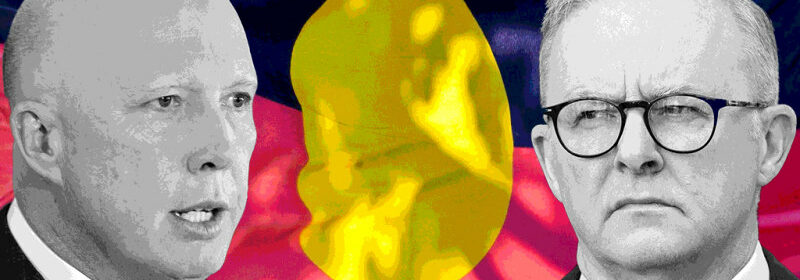In 1967, black Australians became visible. Today, will they be heard?

In 1967, Australians agreed in overwhelming numbers that Aboriginal people should be counted as part of this nation.
The nation also decided to give the federal government the power to make special laws for Indigenous Australians in the states to ensure equal treatment across the land.
Aboriginal activist Faith Bandler (right) prepares to cast her vote at Sydney Town Hall on May 27, 1967.Credit:George Lipman
The government of the day, led by Liberal prime minister Harold Holt, drove support for those decisions at referendum. He received the bipartisan backing of the Labor opposition, led by Arthur Calwell.
More than 90 per cent of Australians – 5.8 million of those who voted – responded by saying yes to making Aboriginal people visible, both in the census and in constitutional decision-making.
The Australian parliament’s vote for the bill to alter the Constitution received unanimous support.
It was, and remains, a dignified moment in a deeply conflicted history.
Fifty-six years later, a Liberal Party leader and his colleagues, out of power and out of ideas, are doing all they can to divide the nation and the parliament in a furious effort to kill a referendum that will ask the nation to grant Aboriginal and Torres Strait Islanders a voice.
Peter Dutton’s Liberals, in effect, want Australians to turn their backs on a polite request made six years ago in the shadow of Uluru, from Indigenous leaders from all points of the land.
“We seek constitutional reforms to empower our people and take a rightful place in our own country,” those representatives of Indigenous Australia asked.
“We call for the establishment of a First Nations Voice enshrined in the Constitution.”
Noel Pearson, Mark Leibler, Pat Anderson and Megan Davis during the closing ceremony in the Mutitjulu community of the First Nations National Convention at Uluru in May 2017.Credit:Alex Ellinghausen
This then, a simple plea for release from what those patient leaders called, on behalf of their people, “the torment of our powerlessness”, was the Uluru Statement From the Heart.
The last words of the statement were plain and powerful.
“In 1967 we were counted, in 2017 we seek to be heard,” it said.
“We leave base camp and start our trek across this vast country. We invite you to walk with us in a movement of the Australian people for a better future.”
In 2023, Peter Dutton, in refusing the invitation to leave base camp and to walk with Aboriginal Australia for a better future, ignores altogether the origins of the request.
To him, it is not a statement from the heart, but “a Canberra voice”.
And he seeks, without shame, to turn on its head the blame for this wretched state of affairs.
“It should be very clear to Australians by now the prime minister is dividing the country, and the Liberal Party seeks to unite the country,” Dutton said. And he kept a straight face.
In an attempt to paper over his failure to reach for even a facsimile of the sort of statesmanship that led Australians to a proud and historic moment in 1967, Dutton and his colleagues declared they would support legislated – rather than constitutionally enshrined – local and regional Indigenous voices.
And yes, recognition of Indigenous people in the Constitution.
He’s a little late. More than 90 per cent of Australians, led by a Liberal prime minister and a Labor opposition leader, voted for something more meaningful than that 56 years ago.
Cut through the noise of federal politics with news, views and expert analysis from Jacqueline Maley. Subscribers can sign up to our weekly Inside Politics newsletter here.
Most Viewed in Politics
From our partners
Source: Read Full Article

